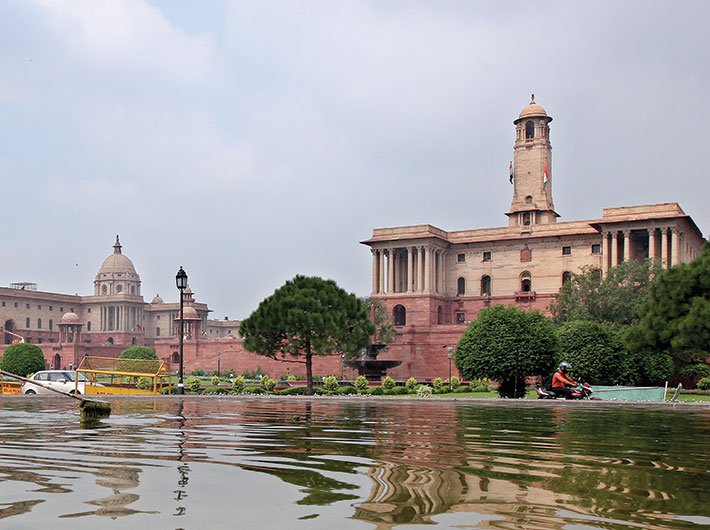In 1988, at the peak of the Rajiv Gandhi-VP Singh face-off fuelled by media exposes, the most respected editor of those times, Girilal Jain, wrote a comment in The Times of India with the headline, “A Galahad of the Press”. It was a rare front-page editorial, and it continued over into an inside page. It clearly targeted Indian Express editor Arun Shourie for pursuing more activism than journalism.
Without going into the merits of the issue that Jain had raised, I am here referring to the usage of the word ‘Galahad’. As a rookie reporter of the ToI back then, I wondered what on earth it meant. I consulted a dictionary and found that ‘Galahad’ is one “who is pure, noble and unselfish”. The usage comes from Sir Galahad, who in Arthurian legend, pursues the Holy Grail, an ideal impossible to attain.
Time is nothing but a collection of memories. The ‘Galahad Syndrome’ that afflicted the Indian press in the eighties has also taken in its grip the entire Indian bureaucracy too. The spectacle of the bitterest-ever bureaucratic gang war being fought in the corridors of power and behind the portals of the country’s highest court on June 27 is only symbolic of the rot that has set in. And all this has been happening in the name of honesty and integrity.
Since individuals are not important, I intend to avoid taking names. But look at the manner in which an officer of state civil services gets integrated into the Enforcement Directorate (ED) and secures judicial intervention to get immunity from any action against his alleged misdemeanours. A bench of the supreme court removes that immunity and directs the official to submit himself to scrutiny like any other officer. The court also refers to a sealed envelope and points out that the contents shown to the court were enough to warrant a scrutiny by the government on the conduct of the officer.
Was there anything wrong in this order? Prima facie, it appears to be a fair order which subjects the official to a regular inquiry without giving him blanket immunity. But if you see the fallout, it would appear as if a monumental sin has been committed. The ED issued a press statement vouching for the integrity of the official and even making a gratuitous reference to a phone call from Dubai. The statement insinuated that the government was leading the SC bench up the garden path by giving a sealed envelope which contains nothing but fictitious charges.
Whether true or false, there is hardly any doubt that a section of civil servants in the country have assumed they are the sole purveyors of truth, exterminators of corruption and defenders of democracy. And they have been consistently subverting the system to pursue their own Holy Grails irrespective of the government’s agenda. The manner in which the ED has been targeting the revenue secretary, an IAS officer with unimpeachable integrity, is only illustrative of drift in various organs of the government.
Ironically, this is not an isolated instance. The CBI is also suffering from internal factional feuds that are looking like a veritable gang war. The modus operandi of these Galahads who are self-proclaimed “pure, noble and unselfish souls” runs quite similar to the underworld gangs. They collude with activist-lawyers, pass on half-truths and convenient information to make cases for public interest litigation (PIL) and hold the system at ransom through judicial intervention. In Delhi such a clique not only thrives in the name of honesty and integrity but has also developed tendency to issue character certificates to fellow officials who have not yet acquired the adequate characteristics of a Galahad.
In Uttar Pradesh, a group of IAS officers had taken upon themselves the task of identifying the most corrupt officers among themselves. In Haryana, an IAS officer assumed the role of sole arbiter of public good and called everyone else who did not fall in his line corrupt. They seek immunity and protection in the name of their self-proclaimed missions, cloaking inefficiency and truancy. Most such officers expend their entire career in creating a parallel system in a bid to subvert the system. It appears quite attractive at first but ultimately turns out to be a bigger threat than corruption in derailing the entire edifice of governance. The problem with these Galahads is that they tend to ignore the glorious history of sacrifice, dedication and honesty of thousands of Indian civil servants since independence.
It would be completely out of place in this context to remember those rare officers who, when cornered, did not have to remind the world of their honesty because everyone else spoke up on their behalf. I promised not to take names, but let me make an exception for an exceptional officer – Harish Chandra Gupta. He is an exception who proves the rule.
ajay@governancenow.com
(The article appears in July 15, 2018 edition)

